
Le Coworking s'étend
More and more businesses are moving into coworking spaces, which has led to the development of different kinds of coworking spaces, and different ways of using them.
The last few years have brought a massive rise in the popularity of coworking spaces. In this blog, we’re going to look at a couple micro-trends that have emerged from the way we use coworking spaces. Firstly we’ll look at the Corporate Coworking Trend: not only are more and more companies building coworking-type spaces into their premises, but nearly half of the world’s big corporations are also renting space in coworking spaces.
Secondly we’ll look at the Pro-working Trend: which combines the popularity of coworking spaces with the Hospitality Design Trend that we covered in another recent blog, and also mixes in some of the latest technology and research into how we work now.

eporta | Photography credits: Brendan Cox
Corporate Coworking Trend
Coworking spaces are no longer considered to be just for freelancers and entrepreneurs. Many of today’s largest and most successful corporations like to have a mixture of “core” offices, which they own or lease long-term, and “flexible” offices that they rent in coworking spaces as and when it’s necessary. This allows them to remain agile, to reorganise teams for every new project, and to minimise costs.
But those aren’t the only benefits; their employees also just enjoy working in these new environments. Coworking spaces are themselves very agile, and can continue to grow and adapt to suit the needs of their community. In fact, some corporations like them so much that they do sign long-term leases on coworking spaces, and sometimes take over an entire building exclusively for themselves.
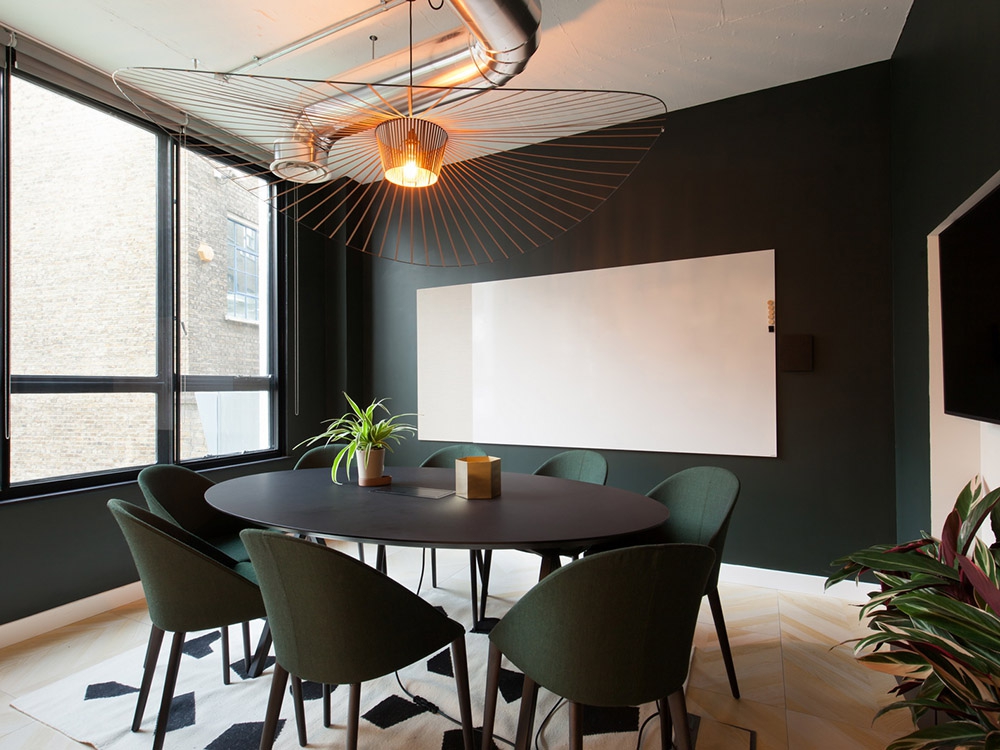
eporta | Photography credits: Brendan Cox
Right now, 44% (and rising) of big corporations are using a coworking space of some sort for their operations. Microsoft, for instance, signed a deal in 2016 to move 300 staff from its marketing and sales teams into two WeWork locations in New York, and has signed similar deals in other American cities too. What attracts them to these spaces, a company spokesman has explained, is a desire to “feed off the energy at every WeWork location you feel when you walk in.”
Similarly, Facebook signed a deal with WeWork last year to lease the whole of their “The Village at San Antonio” building in Mountain View. Not only was this the largest deal WeWork had signed, it was also the largest lease signed in Silicon Valley last year. In short, the Corporate Coworking Trend is transforming the hugely lucrative real estate industry.

Moia's minimalist Hamburg office | Photography credits: Sarah Rubensdorffer
Furthermore, big corporations are not only signing deals to lease coworking spaces, they’re also signing management agreements with those running coworking spaces in order to learn how to provide their staff with the best workplace experiences possible. For instance, IBM have signed a deal with WeWork, and Industrious have signed a deal with EQ Offices.

Solutions Rent Coworking Space | Photography: Fotomohito
Pro-working Trend
Since they began opening locations in London in 2017, high-end coworking space provider Fora has differentiated themselves from competitors like WeWork—which they see as mostly geared towards startups and tech companies—by building bespoke spaces for “grown-ups of all kinds”. They want to elevate the coworking experience to a more luxurious and professional level, and they’ve come up with a good name for this: “Pro-working”.
The company was cofounded by Katrina Larkin, who previously founded The Big Chill festival, with global hotel management executive Enrico Sanna, who explains, “Fora is bringing something completely different to the world of working, or ‘pro-working’ as we like to call it, taking the best of the hotel experience and applying it to the work environment.”

De Beauvoir Block's London coworking space | Photography credits: Nicholas Worley
Their approach is a particularly high-end response to the Hospitality Design Trend of workplace designers borrowing more and more from the world of hospitality design. Each of Fora’s locations includes a destination restaurant, lobby bar, members’ club, yoga studio, boardroom and more besides. Other perks include bike rooms, showers with towels and toiletries, and a dry room in case your clothes get soaked in the rain. They even go so far as to send their staff to a renowned hospitality school in Lausanne, Switzerland. The results? Everybody working there feels like they’re being looked after, which raises happiness levels, productivity and creativity.

Solutions Rent Coworking Space | Photography: Fotomohito
Furthermore, Fora also embrace a high-tech approach to designing the perfect space, and use their entire portfolio of offices as a laboratory for new ideas. They use quantitative analysis tools like sensors that monitor when and how frequently different parts of their buildings are used, and frequent qualitative surveys to determine what their customers like (and what they don’t), to gather data for a three-year research programme into the optimal design and composition of office spaces that they’re running with professors in ethnology from the prestigious Massachusetts Institute of Technology (MIT). As a company they are, clearly, massively ambitious.

Solutions Rent Coworking Space | Photography: Fotomohito
In conclusion, more and more businesses are moving into coworking spaces, which has led to the development of different kinds of coworking spaces, and different ways of using them. With the rising popularity of the Pro-working Trend, the Corporate Coworking Trend, the Coworking Design Trend that we’ve covered previously, and no doubt more to come, the office environments in which we work are going through nothing short of a revolution.


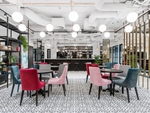
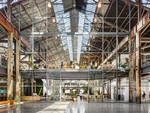
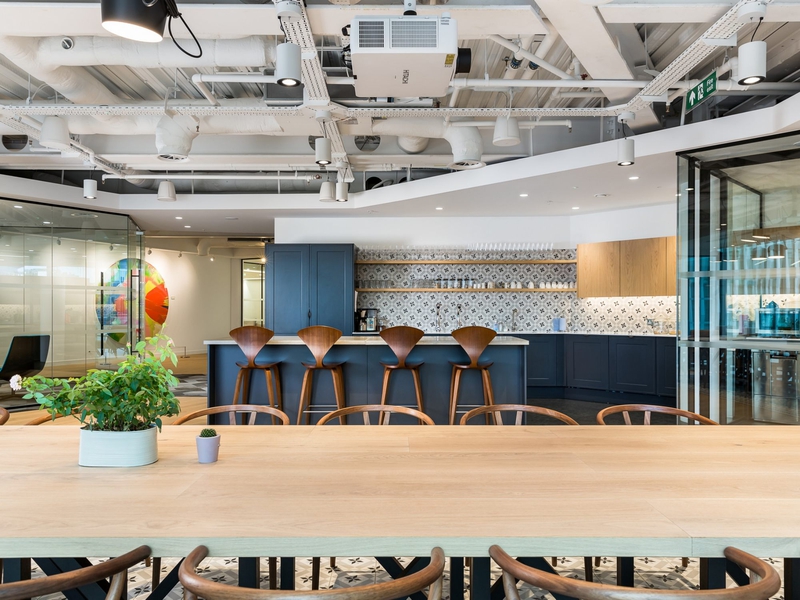
pour leur bureau de Londres au coeur de Westminster, Tishman Speyer à collaboré avec Oktra pour créer un espace ludique…
IMMOBILIER
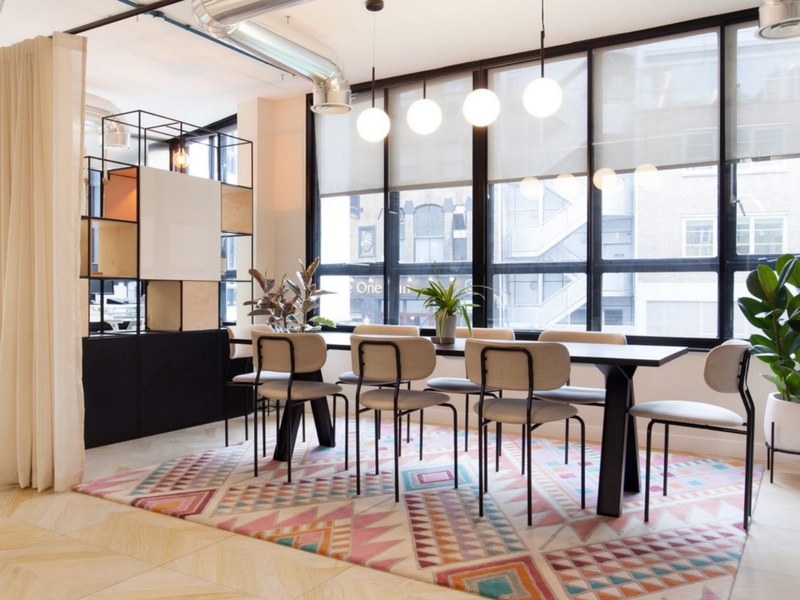
Les experts en design de Eporta ont récemment achevé la transformation de leurs nouveaux bureaus très style à Londres. …
ARCHITECTURE & CONCEPTION
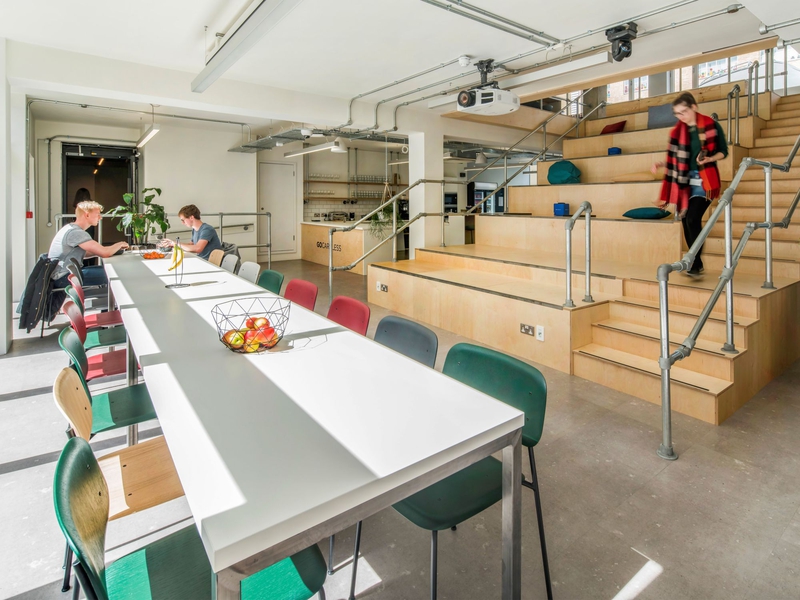
Les spécialistes de Paiement Direct en Ligne GoCardless ont récemment déménagé dans des locaux plus grands dans le pôle…
SERVICES FINANCIERS